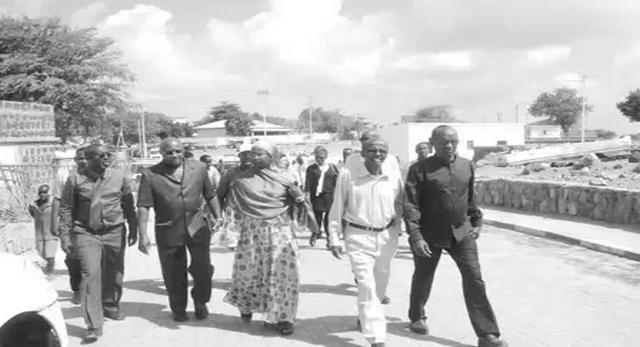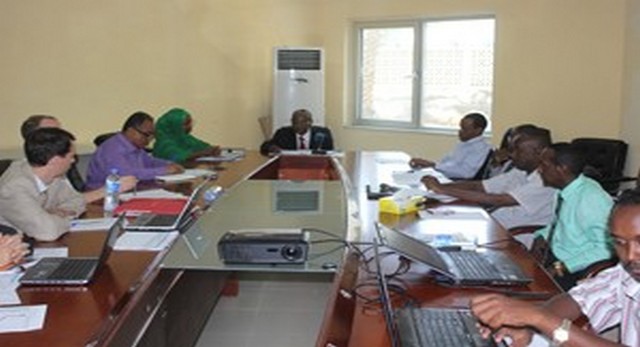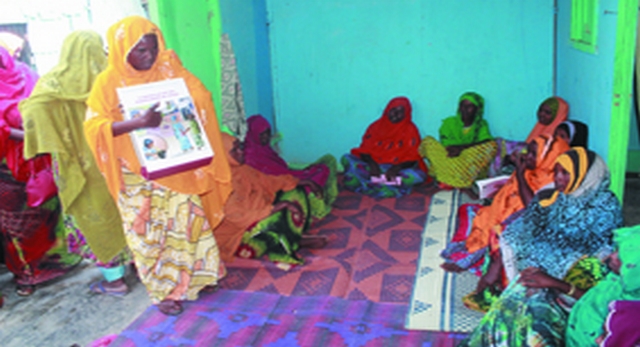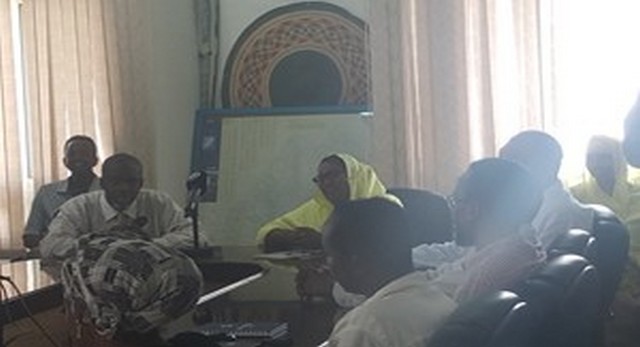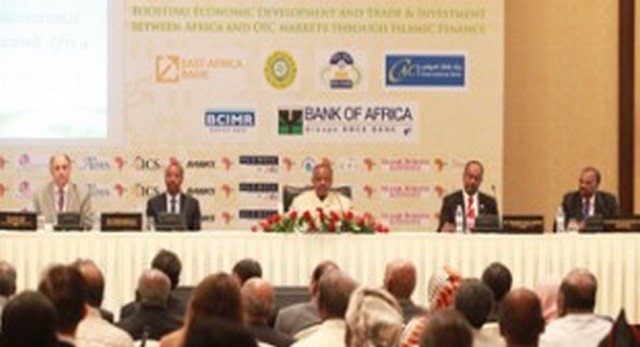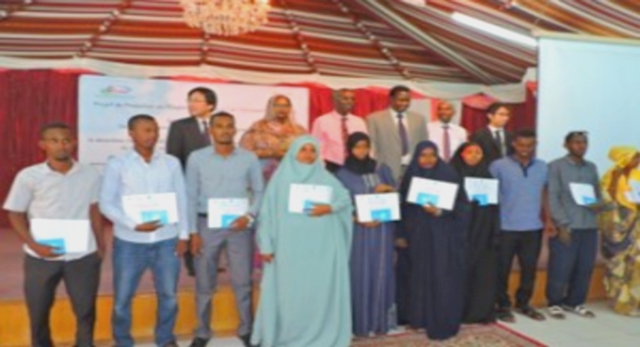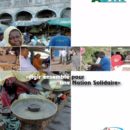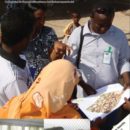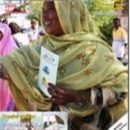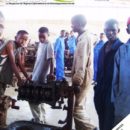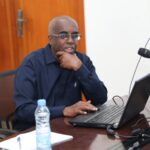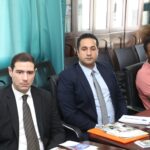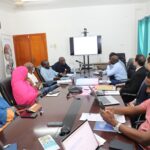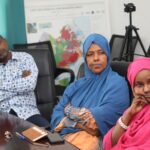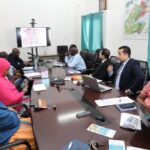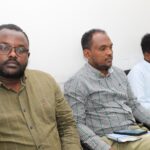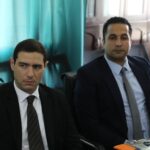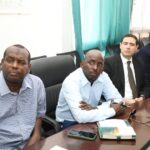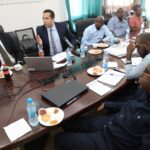Project to reduce urban poverty and the pilot program on employment and human development
The week of national solidarity coincided with the closure of two major projects. The first project focused on social safety nets. It is funded to the tune of 3.6 million US dollars by the Japanese Social Development Fund and administered by the Bank mondiale.Le second project was the reduction of urban poverty in District 7 of Djibouti City. The World Bank has funded in the amount of 5.6 million US dollars.
The Urban Poverty Reduction Project and the pilot program on employment and human development have officially closed last Sunday at the palace of the people of our capital.
A double epilogue that is introduced in the context of the week of national solidarity. The closing ceremony was held under the auspices of the Secretary of State for National Solidarity Zahra Youssouf Kayad.
The event saw the participation of the resident-representative of the World Bank in Djibouti Homa- Zahra Fotouhi, the mayor of Djibouti city, Houssein Abdillahi Kayad, the respective presidents of the municipalities of Ras Dika, Boulaos and Balbala the presidents of the regional councils, heads of prefectures, officials from the Djibouti social Development agency (ADDS), representatives of various sectoral ministries, civil society, the mouthpiece of the beneficiaries of both projects.
After the welcoming words of local elected Ras Dika, Boulaos and Balbala; ADDS managers have, in turn, presented the objectives of these sites. The results also have been achieved in the implementation of the two projects.
The first project focused on social safety nets. It is funded to the tune of 3.6 million US dollars by the Japanese Social Development Fund and administered by the World Bank.
ADDS was the main contractor and enjoyed the cooperation of non-governmental non-profit organizations such as UNFD and EVA to name a few.
The purpose of the said project was the prevention of child and maternal malnutrition and creating temporary jobs for vulnerable households.
Target areas were the locality of Damerjog in the area of Arta, several popular Balbala and the Arhiba in the capital, the village of Adailou in Tadjourah region, the capitals of the regions and Dikhil Obock.
Supporting figures, 6207 households were stakeholder awareness sessions on prevention of malnutrition. While 4650 households have benefited from high labor-intensive activities. Moving on.
The second project involved the reduction of urban poverty in District 7. The World Bank has funded in the amount of 5.6 million US dollars.
In terms of achievements, several social facilities were built in Ward 7, one of the most populated of the capital.
These include a community development center, a health center, a football field, a multipurpose court, paved roads, and asphalt roads.
Tangible achievements plus support activities under the overhaul of human capital such as professional training opportunities for school leavers and suitable training to strengthen capacity of local associations.
All of this was made possible by the sense of commitment of the beneficiaries. The Secretary of State for National Solidarity reminded to the audience gathered last Sunday at the People’s Palace.
Ms. Zahra Youssouf Kayad said the first project of social safety nets are part of the national social protection strategy, initiated by the President of the Republic, Mr. Ismail Omar Guelleh.
In full compliance with the roadmap of government, the State Secretariat for National Solidarity has developed a national social protection strategy, focused on social safety nets in 2012 and better coordination of actions of different players in this field .
The priority of the head of state and his government is to do in this way our country economically viable and socially equitable country.
The Secretary of State for National Solidarity also thanked all the participants of the meeting on Sunday for their active collaboration. Because they have greatly contributed to the success of projects.
She also extended thanks supported the Ministry of Housing, Urban Development and the Environment and the State Secretariat for Housing for their support without which the project of urban poverty reduction in area 7 would not have succeeded .
Zahra Youssouf Kayad has further urged the local authorities and the population of the various beneficiary districts to preserve the quality of social facilities available to them.
For its part, the resident-representative of the World Bank said that the oldest of two projects, namely the project of the Urban Poverty Reduction in Djibouti, commonly known under the name PREPUD began in 2008.
This project was part of assistance from donors willing to support the government of Djibouti to increase access of the population to basic social infrastructure, particularly in the framework of the National Initiative for Social Development (INDS ).
Among the coordinated response to the fight against poverty, the project of the World Bank was the largest district of Djibouti City, the Q7 neighborhood.
“I am very happy with the entire infrastructure, and social activities that have been carried out with a total budget of 5.9 million US dollars, funded by IDA, which is the window of the World Bank Group for the poor countries, “said Ms. substance. Homa-Zahra Fotouhi.
According to him, the World Bank remains committed to the fight against poverty in Djibouti. “I reiterate today the support of the World Bank to the Government of Djibouti to achieve the national goals of economic and social development in the context of a shared prosperity,” she hammered insistently last Sunday at palace people.
Mohamed Chakib
Week of the National Solidarity: A double epilogue at the Hall of the People
A propos

L’Agence Djiboutienne de Développement Social, Etablissement public à caractère administratif, issue de la fusion de l’ancienne Agence Djiboutienne d’Exécution des Travaux d’Intérêt Public (ADETIP) et de l’ancien projet Fonds Social de Développement (FSD).
- Agence Djiboutienne de Développement Social
- Avenue Mohamed DJAMA ELABEH Plateau du serpent
- BP:4298 Djibouti
- République de Djibouti
- Tel: +253 35 86 55/ +253 35 82 82
- E mail: direction@adds.dj
- Site Web: www.adds.dj
Nous localiser via google map
© Agence Djiboutienne de Développement Social - 2025. Tous droits réservés

